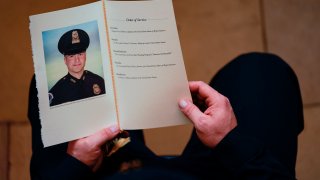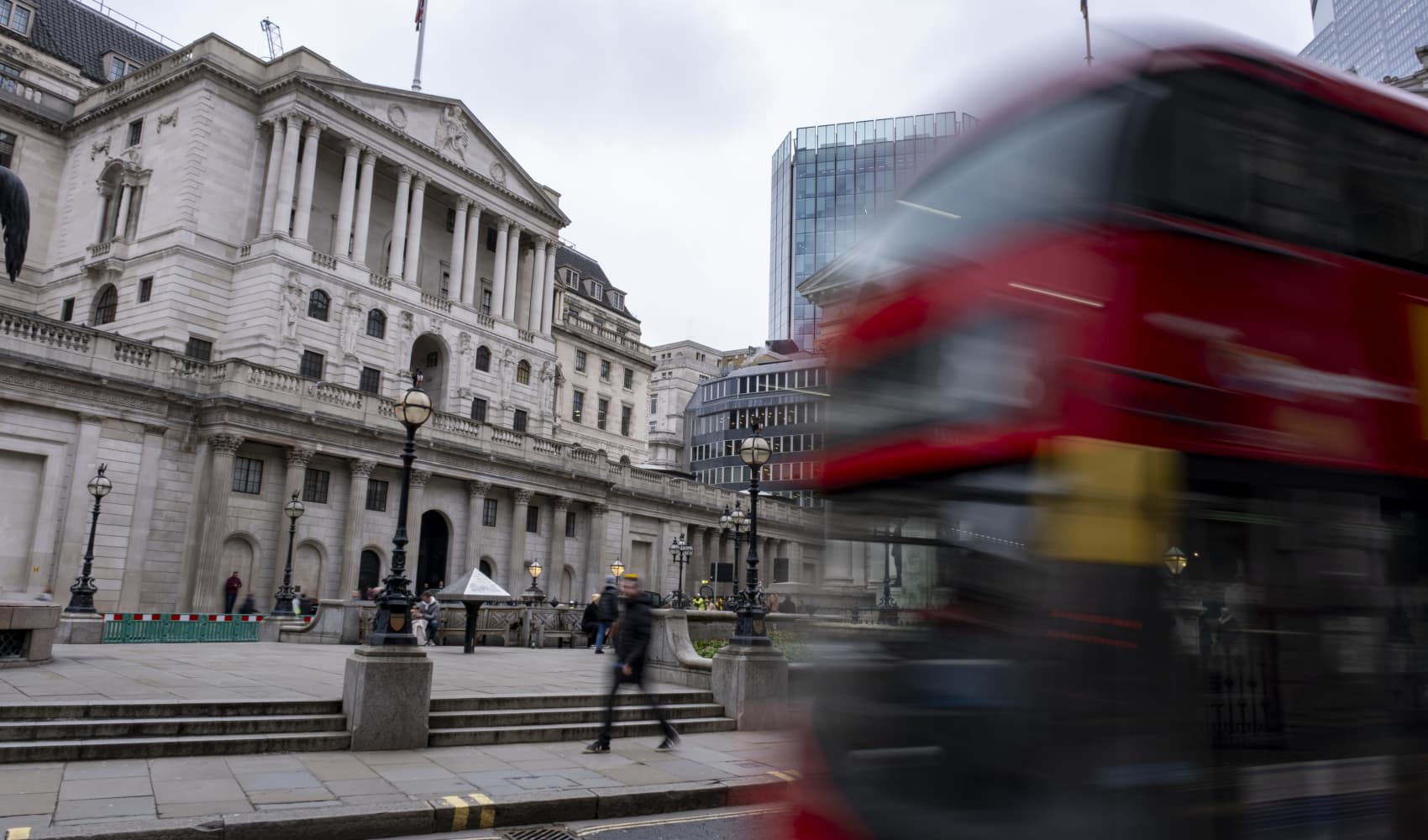
- Police officer Brian Sicknick suffered strokes and died of natural causes a day after he grappled with pro-Trump rioters at the Jan. 6 invasion of the U.S. Capitol, Washington's chief medical examiner ruled.
- The ruling could have a major impact on the efforts to prosecute two men who were charged last month with assaulting Sicknick with a chemical spray.
- Sicknick's official cause of death was "acute brainstem and cerebellar infarcts due to acute basilar artery thrombosis."
Police officer Brian Sicknick suffered strokes and died of natural causes a day after he grappled with a riotous mob of former President Donald Trump's supporters during the Jan. 6 invasion of the U.S. Capitol, Washington's chief medical examiner said Monday.
The finding could make it difficult, if not impossible, to bring murder charges in Sicknick's death. Two men were arrested last month and charged with assaulting the officer with a chemical spray.
Get New England news, weather forecasts and entertainment stories to your inbox. Sign up for NECN newsletters.
Sicknick, 42, was "sprayed with a chemical substance outside the U.S. Capitol" during the invasion at about 2:20 p.m., the office of Chief Medical Examiner Francisco Diaz noted in the ruling.
At around 10 p.m. that night, Sicknick collapsed at the Capitol and was transported to a hospital, Diaz's office determined. He died there at 9:30 p.m. the following evening.
Sicknick's official cause of death was "acute brainstem and cerebellar infarcts due to acute basilar artery thrombosis," according to the medical examiner's office.
Money Report
The officer's manner of death — the circumstances surrounding his passing — was determined to be "natural," the office said. That term is used when a death is caused solely by a disease and is not hastened by an injury.
But Diaz in an interview with The Washington Post noted Sicknick's role in confronting the rioters hours before his collapse, saying, "all that transpired played a role in his condition."
Still, Diaz told the newspaper that Sicknick's autopsy found no evidence that the officer had an allergic reaction to the chemical irritants sprayed at him during the riot.
The Capitol Police said in a press release on the day of Sicknick's death that he "passed away due to injuries sustained while on-duty."
In a statement Monday evening to NBC News, the USCP said it accepts the findings from Diaz's office, "but this does not change the fact Officer Brian Sicknick died in the line of duty, courageously defending Congress and the Capitol."
"The department continues to mourn the loss of our beloved colleague. The attack on our officers, including Brian, was an attack on our democracy," the USCP said. It added that law enforcement agencies "will continue to ensure those responsible for the assault against officers are held accountable."
The medical examiner's ruling on Sicknick's death was viewed as the determining factor in whether homicide charges could be brought in the case of Julian Khater and George Tanios.
The two men are accused of assaulting Sicknick and other officers with a substance similar to bear spray. They are not currently charged with killing Sicknick.
Michael Sherwin, the federal prosecutor who was leading the investigation of the assault on the Capitol, told CBS News' "60 Minutes" in March that he imagined murder charges would be brought if the medical examiner ruled that the spray played a role in Sicknick's death.
"If evidence directly relates that chemical to his death, yeah. We have causation, we have a link. Yes. In that scenario, correct, that's a murder case," Sherwin told CBS.






